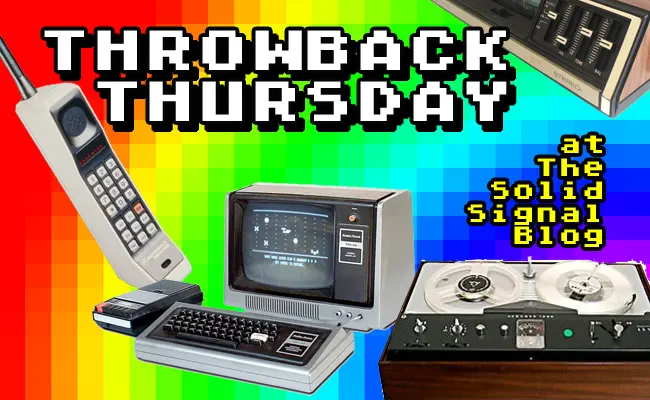It was well over thirty years ago. HBO had only been in business for a little over a decade. Cable TV was thriving, and satellite TV hadn’t really taken off. Back in those days if you wanted satellite you needed a huge dish and an equally huge amount of patience. A satellite uplink operator calling himself “Captain Midnight” took control of HBO’s feed to protest its encryption and the high prices charged to customers. The story became legend, recounted several times including this 2007 entry.
At the time it was seen as a bit of a prank, and although the offending officer ended up paying a hefty fine, his world otherwise returned to normal. That, if nothing else, tells you how different the world is today compared to back then. Today I imagine that he’d be sent on a one-way trip to Guantanamo, never to be heard from again. That sort of thing is taken much more seriously now than it was then.
Looking back to those days
Back in the 1980s, pay-TV was considered big business, to be sure, but nothing like it is today. There were very few national players in the game, and most cable TV systems were locally managed by small operators. The “multiple system operator,” the big dog in the cable TV world, may have owned a dozen systems and maybe had 250k subscribers. Today’s big players have tens of millions. At the same time, the business of putting up cable channels has blossomed too, with hundreds and hundreds of them generating billions upon billions of dollars.
Remember too, that this was only about 15 years from the days when hippies, phone “phreaks” and other outsiders captured the popular imagination. The public saw people fighting back against the system as modern-day Robin Hoods. Those who stole content were liberators of information that big businesses held for ransom. At least that’s what the public thought. Today, there are certainly still people who think that way but there’s been a backlash and it started about the time “Captain Midnight” pulled his stunt. Businesses have rights, too. In the years that followed, businesses learned to spend time defending those rights.
Changes in the intervening years
In the decade after the “Captain Midnight” event, price inflation for cable channels slowed. Satellite TV was born. Not only that, a few individuals quietly started building the online world. In the decade after that, a massive, massive shift occurred. Information went from being incredibly valuable to being a free commodity. Obviously there’s still a big market for pay-TV. But, most video creators give their content to people for free in order to sell ads. Copying content went from being difficult and confusing to being routine. Most companies finally gave up and set fair prices to discourage piracy. HBO not only recovered but thrived, turning into the pioneering online and pay-TV service it is today. Captain Midnight, probably now in his sixties, disappeared from public view and only surfaces on the anniversaries of his stunt. So it would seem that yes, there have been winners and losers on both sides. Still it doesn’t look like HBO suffered at all by that little stunt so many decades ago. It just showed them what a dedicated individual is capable of.
Could it happen today?
Nothing is unhackable, that’s for sure. But today’s satellite services use encryption in ways that would take months or years to solve. As for streaming apps, they use similar encryption as well. In both cases, the keys change so quickly that it’s impossible to decrypt them. Or so we tend to think today, anyway.

